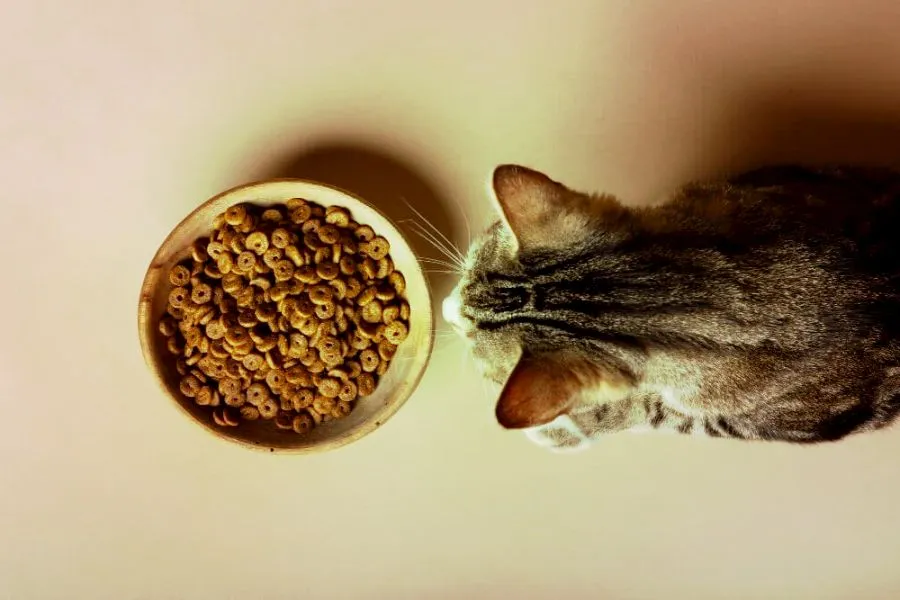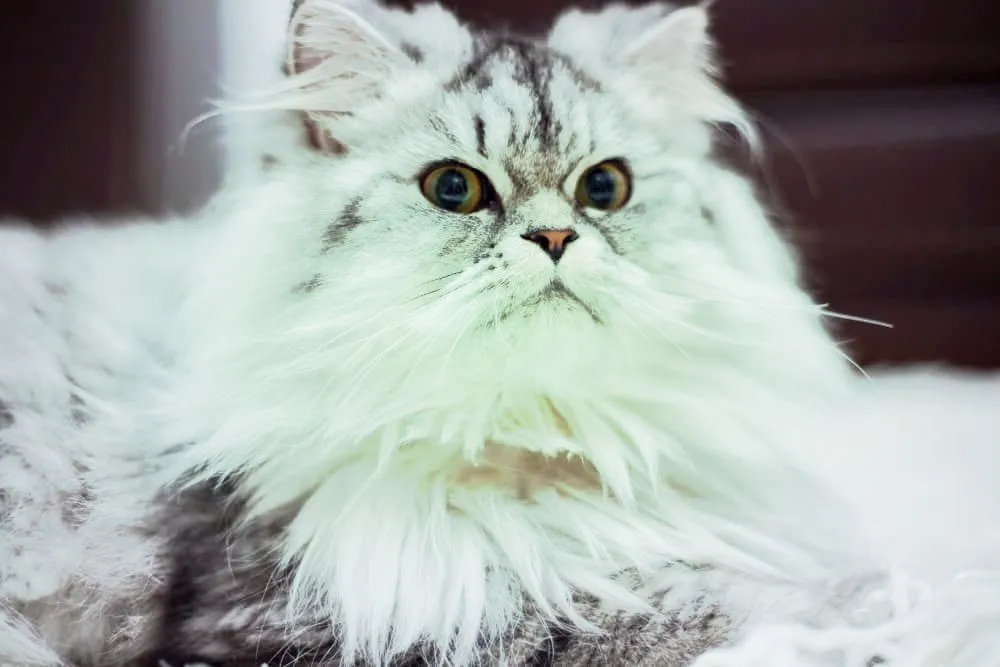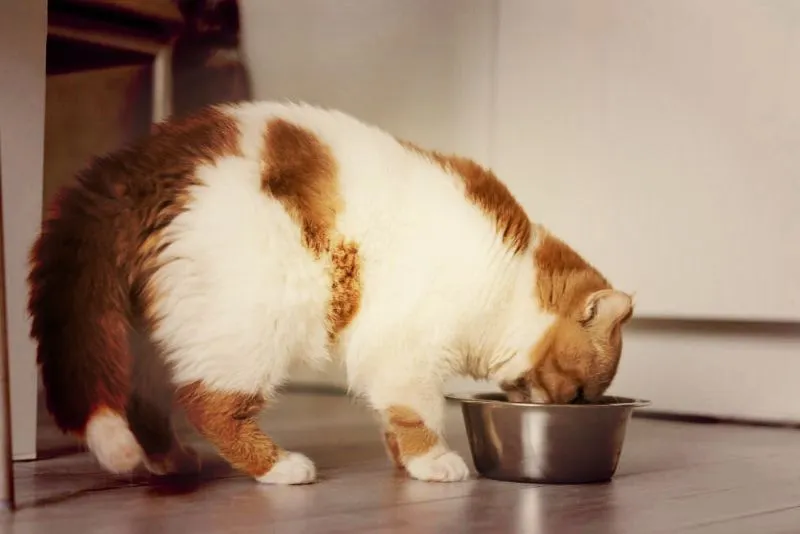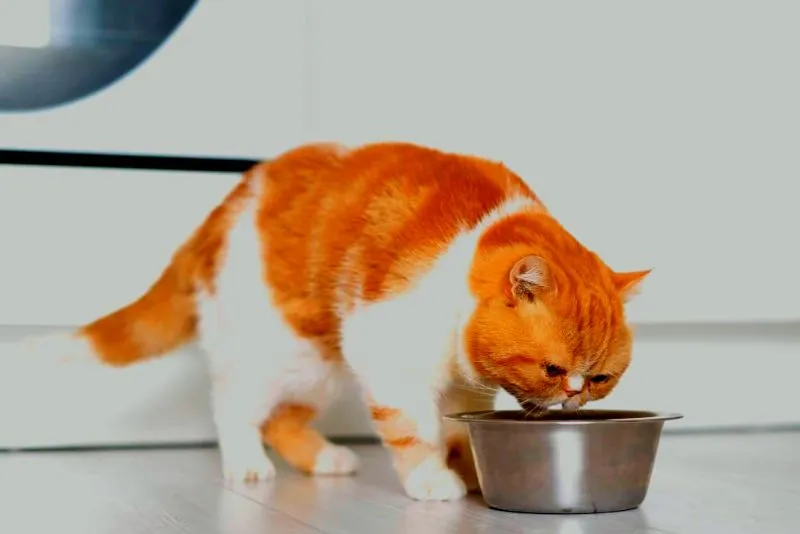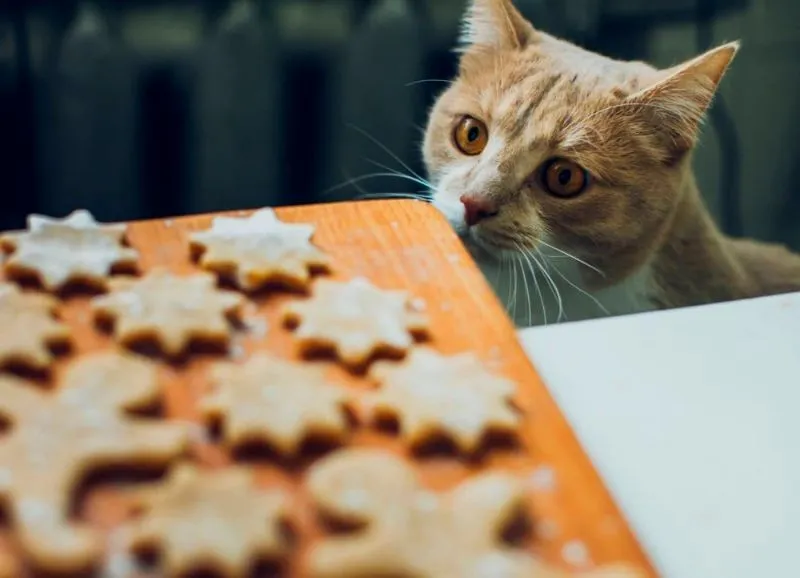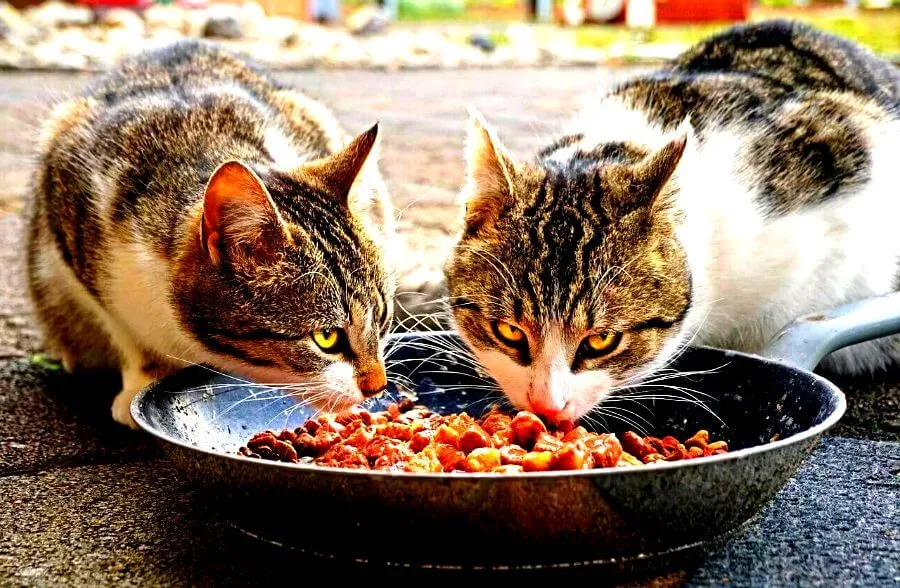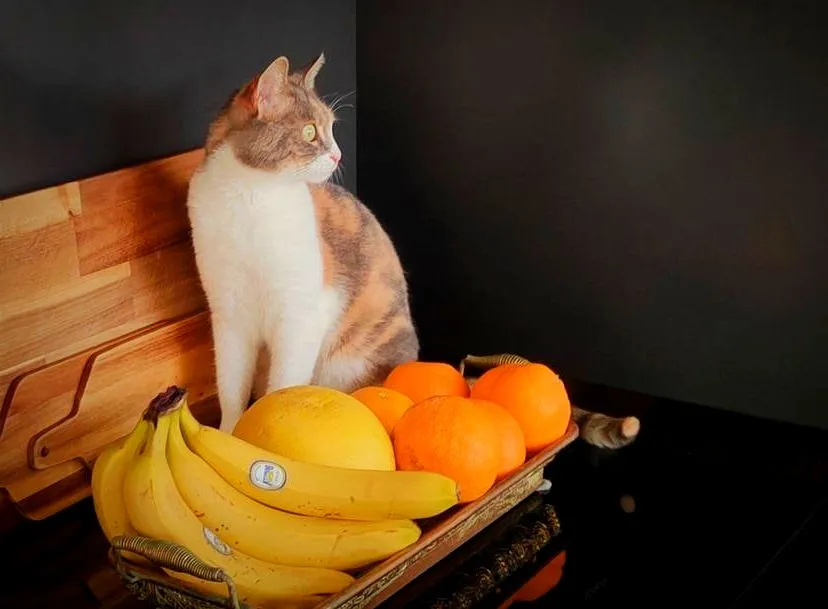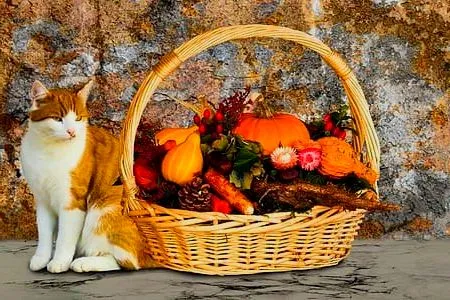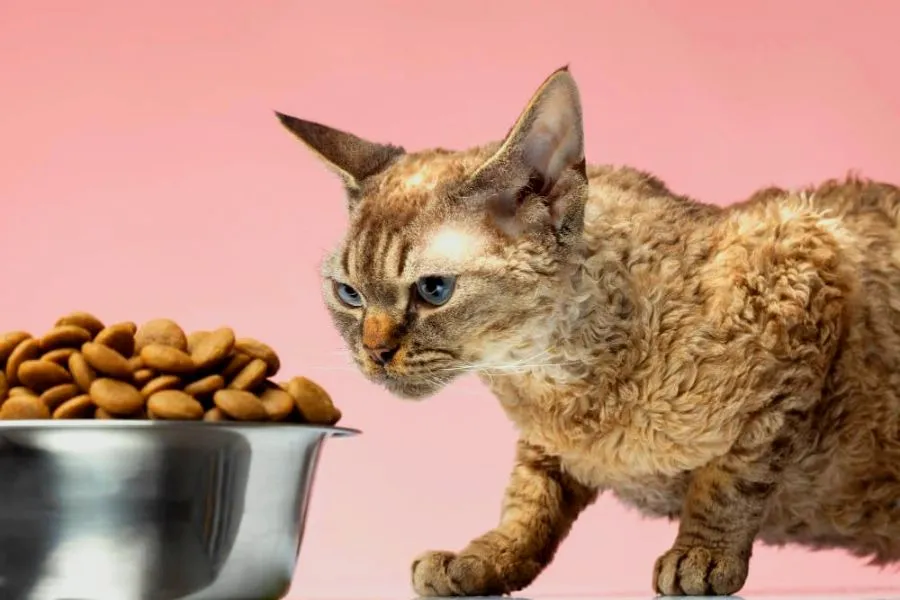
Cats eat a diet that consists mainly of meat and protein-based foods. They are carnivores and require a balanced diet of meat, fish, and poultry.
Cats have specific dietary needs that differ from other animals. As obligate carnivores, their bodies are designed to thrive on a diet primarily consisting of meat and protein.
While humans and some animals can derive essential nutrients from plant-based sources, cats are incapable of doing so.
In the wild, cats rely on hunting and consuming prey to meet their nutritional requirements. However, domesticated cats have adapted to a diet provided by their human caregivers.
Providing the right food is crucial for their overall health and well-being. We will explore what cats eat, discuss their dietary needs, and provide tips for ensuring a proper diet for your feline companion.
What Can Cats Eat?
Cats are carnivorous animals and their diet should consist primarily of meat. Protein is an essential component of a cat’s diet, as it helps to support their muscle growth and overall health.
Therefore, it is important to provide them with a balanced diet that includes high-quality sources of animal protein.
Some common options include poultry, beef, and fish. However, it’s worth noting that fish should not make up the bulk of a cat’s diet, as it lacks certain essential nutrients. In addition to meat, cats also require certain vitamins and minerals.
These can be obtained through commercially available cat food that is specifically formulated to meet their nutritional needs. It’s important to read the labels and choose a reputable brand that provides all the essential nutrients your cat requires. Additionally, it’s important to provide fresh water to keep your cat hydrated.
Proper nutrition is vital for your cat’s overall well-being, so it’s important to consult with a veterinarian to ensure you are providing them with a balanced and appropriate diet.
What Should I Feed My Cat?
Cats are unique creatures with specific dietary needs. When it comes to feeding your feline friend, it is crucial to provide them with a balanced and nutritious diet. Cats are obligate carnivores, meaning that their bodies require meat to thrive.
High-quality commercially available cat food is formulated to meet these nutritional requirements. Seek for cat food with an optimal ratio of carbohydrates, lipids, and proteins. Avoid feeding your cat a diet predominantly consisting of carbohydrates, as this can lead to obesity and health issues.
Additionally, it is essential to provide fresh water at all times to keep your cat hydrated. Avoid feeding them human food, as some ingredients can be harmful to their health.
Make sure to consult with your veterinarian to determine the best diet for your specific cat, taking into consideration any dietary restrictions or allergies they may have.
By providing your cat with a well-balanced diet, you are ensuring their overall health and well-being.
What Foods Should My Cat Not Eat?
Cats are known for being picky eaters, but it’s important to know what foods they should avoid. Certain foods can be toxic or harmful to cats and should be kept out of their reach. For example, chocolate contains theobromine, which is harmful to cats and can cause vomiting, diarrhea, and even seizures.
Onions and garlic, in any form, can damage a cat’s red blood cells and lead to anemia. In cats, kidney damage can be caused on by raisins and grapes. Additionally, foods that are high in fat, like bacon or fried foods, can lead to pancreatitis in cats.
It’s also important to keep cats away from raw meat, as it may contain harmful bacteria like salmonella or E. coli. In general, it’s best to stick to a balanced, commercially-prepared cat food to ensure that your feline friend gets all the nutrients they need without any potential hazards.
What To Do If Your Cat Won’t Eat?
If your cat refuses to eat, it can be a cause for concern. Cats are known for their picky eating habits, but it’s important to address the issue promptly. One possible reason for your cat’s lack of appetite could be an underlying health problem.
If your cat is displaying other symptoms or if the refusal to eat persists for more than a day, it is recommended to consult your veterinarian. To encourage your cat to eat, you can try offering different types of food.
Experiment with wet food, dry food, and a variety of flavors to see what your cat prefers. Also, make sure the feeding area is clean and quiet, as cats are sensitive to their environment. Additionally, try to establish a regular feeding routine to create a sense of stability for your cat.
Remember, it’s crucial to monitor your cat’s eating habits and seek professional help if necessary to ensure their well-being.
What Human Foods Can Cats Eat?
Cats have specific dietary requirements, and while they may seem curious about the food we eat, not all human foods are safe for them. It’s important to know which human foods are safe to share with your feline friend and which ones to avoid.
One human food that cats can eat in small quantities is cooked chicken. Chicken provides a good source of lean protein for cats, but be sure to remove any bones and seasoning before feeding it to them. Another safe option is cooked fish, such as salmon or tuna, which can be a good source of omega-3 fatty acids.
However, there are certain human foods that should never be given to cats. This includes foods like chocolate, garlic, onions, grapes, and raisins, as they can be toxic and potentially dangerous to cats. Dairy products, like milk and cheese, should also be avoided as many cats are lactose intolerant.
Always consult with your veterinarian before introducing any new foods into your cat’s diet to ensure their safety and well-being. Remember, a balanced and complete feline diet is essential for their overall health.
Cat Diet
When it comes to the diet of cats, it is important to know what they can and cannot eat. Cats are obligate carnivores, which means their diet should consist mostly of animal protein. They require certain nutrients that are only found in meat, such as taurine, which is essential for their heart and eye health.
Commercial cat food is formulated to meet all their nutritional needs and is recommended by veterinarians. It is essential to choose high-quality cat food that has a balance of protein, fat, and carbohydrates. Avoid feeding your cat a solely vegetarian or vegan diet, as they will not receive the necessary nutrients.
Additionally, avoid giving them certain foods that can be toxic, such as chocolate, onions, garlic, and grapes. Always consult with a veterinarian to ensure you are providing the best diet for your cat’s specific needs.
Adult Cat Diet
Cats have specific dietary needs and a well-balanced diet is crucial for their overall health and wellbeing. When it comes to the adult cat diet, it is important to provide them with a nutritionally balanced meal that meets their unique needs.
Adult cats require a combination of protein, fats, and carbohydrates. Protein is an essential component of their diet and should come from high-quality sources such as meat or fish. Fats provide cats with energy and support various bodily functions. Carbohydrates, although not essential, can be included in their diet in moderate amounts.
It is advisable to feed adult cats with commercially available cat food that is specially formulated to meet their nutritional requirements. These cat foods usually contain a proper blend of nutrients including vitamins, minerals, and antioxidants. Additionally, it is important to provide fresh water at all times to keep your adult cat hydrated.
By following these guidelines, you can ensure that your adult cat is getting the right nutrition to lead a healthy and happy life.
Senior Cat Diet
As cats age, their dietary needs may change, requiring a specialized senior cat diet. Older cats often have different health issues, including arthritis and kidney disease, that require specific nutrition. To ensure their well-being, it is important to provide a balanced and age-appropriate diet.
A senior cat’s food should contain higher levels of protein to maintain muscle mass and promote a healthy weight. Additionally, it should be lower in calories to prevent obesity. As older cats may have dental problems, it is advisable to choose a diet with softer and easier-to-chew kibble or consider offering wet food.
Senior cat diets should also include supplements such as glucosamine and omega-3 fatty acids to support joint health. Always consult with your veterinarian to determine the best diet plan for your senior cat’s specific needs. Providing proper nutrition is crucial in ensuring that our feline friends remain healthy and happy in their senior years.
A Final Word
To ensure your feline friend’s optimal health, understanding what cats eat is crucial. By providing a balanced diet specific to their dietary needs, you can support their overall well-being. Whether it’s commercial cat food or homemade meals, remember to incorporate high-quality protein, essential vitamins, and minerals.
Furthermore, always consult with a veterinarian to determine the best dietary plan for your cat. Taking these steps will help keep your precious companion happy and healthy for years to come.

